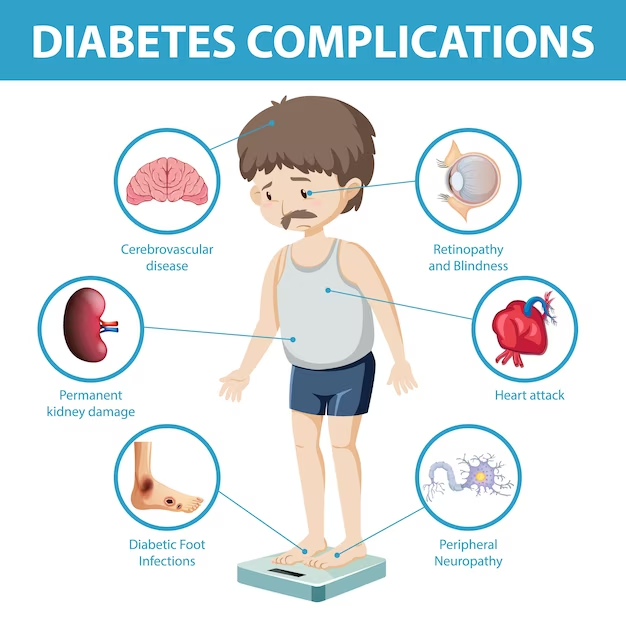PREDIABETES: WITH 136 MILLION AT HIGH RISK OF DIABETES, WHAT CAN YOU DO TO REVERSE OR MINIMISE YOUR RISK OF DIABETES
INTRODUCTION:
A startling 136 million
people globally have prediabetes, which acts as a precursor to actual diabetes.
The good news is that by taking preventative steps, this illness can be
reversed or significantly reduced. We will examine professional guidance on how
to lower the possibility that prediabetes may turn into diabetes and protect
your long-term health in this article.
The global burden of
diabetes is approximately 422 million with the worldwide number of prediabetes
growing substantially. The recently released ICMR study estimates that in India
alone, 136 million people, which is more than the population of Maharashtra or
15.3% of the entire population of the country, are likely to be pre-diabetic! A
prediabetic is said to be at a high risk of developing diabetes.
Adopt a Healthy Lifestyle: Living a healthy lifestyle is one of the best methods to fight prediabetes. Make wise dietary decisions at first, emphasizing healthy grains, lean meats, fruits, and vegetables. Reduce your intake of processed meals, sweet drinks, and high-fat foods. By doing this, you can maintain blood sugar levels and advance general health
Exercise Regularly: Exercise regularly is essential for lowering the chance of developing diabetes. Include physical exercise in your regular routine by running, cycling, swimming, or brisk walking. Try to exercise for at least 30 minutes, most days of the week, at a moderate level. This facilitates efficient glucose utilization by your body and controls blood sugar levels.
Prediabetes epidemic
experienced in India is due to strong genetic factors combined with
urbanization and lifestyle changes that cause insulin resistance. Higher rates
of central obesity and increased visceral fat are contributing to insulin
resistance, thus causing prediabetes.”
Maintain a Healthy Weight: It's essential to keep your weight in check if you want to stop prediabetes from turning into diabetes. The body's ability to produce and use insulin is further strained by excess body weight. You may reach and maintain a healthy weight and lower your risk of having diabetes by following a balanced diet and getting frequent exercise.
Regularly checking your
blood sugar levels can provide you important information about how well you're
doing. To decide on the proper monitoring schedule and technique, speak with
your healthcare physician. This enables early change detection and, if necessary,
prompt response.
Seven Sins of modern
lifestyle - sedentary life, stress, poor quality or low hours of sleep, salt
(excess), sugar, smoking, spirits, and alcohol. All this has led to a drastic
change in our lifestyle. “It's estimated that between 15% to 30% of people with
prediabetes will develop diabetes within the next 3-5 years if no lifestyle
changes are made. The spike in cases is also due to a combination of factors,
including lack of physical activity, mental stress, COVID-19 illness and
subsequent hospitalization.”
The increase of desk jobs,
extensive use of technology, and lack of fitness activities coupled with the consumption of processed foods, sugary beverages, and high-calorie snacks have
all contributed to overall weight gain, which is often related to an increased
risk of developing pre-diabetes. The resulting obesity with excess body weight,
especially around the abdomen, increases the risk of insulin resistance and
impaired glucose metabolism, adds Katerine.
It is true that carbohydrate intake plays a
significant role in blood sugar regulation, but it is not the sole culprit in
the development of pre-diabetes or diabetes. “One must understand that not all
carbohydrates are the same. Refined carbohydrates, such as white rice, white
bread, and processed foods, have a higher glycaemic index, meaning they can
cause a rapid increase in blood sugar levels. It is true that traditional
Indian cuisine often includes a variety of carbohydrates, such as rice, roti
(bread), and lentils and all of these can have an adverse impact on blood sugar
levels.
When you eat more carbs than your body needs,
the excess calories get stored as fat. This can cause you to gain weight. Body
fat, especially around the belly, is linked to insulin resistance.
Watching your carb intake can help you avoid
blood sugar spikes.”
Signs of prediabetes. Consult
a Healthcare expert: If you have prediabetes or are worried about your risk of
getting diabetes, seek expert guidance. They may provide you individualized
counsel, direction, and assistance catered to your unique need. To properly
manage your risk, they could suggest further measures including medication,
dietary changes, or extra tests.
Prediabetes doesn't usually
have any signs or symptoms. “One possible sign of prediabetes is darkened skin
on certain parts of the body. Affected areas can include the neck, armpits and
groin,”
SOME COMMON SYMPTOMS
ARE:
INCREASED THIRST
FREQUENT URINATION
INCREASED
HUNGER FATIGUE
BLURRED VISION
NUMBNESS OR TINGLING
IN THE FEET OR HANDS
FREQUENT INFECTIONS
SLOW-HEALING SORES
UNINTENDED WEIGHT
LOSS
Caterina Pesenti, Head of
Medical and Scientific Affairs, IMEA at Roche Diabetes Care further adds, “You
can have prediabetes for years without developing any symptoms. Technically
this means that unless you are not aware that you are pre-diabetic, you will
not know till a serious health problem arises. Improving your lifestyle habits
and regular monitoring of your sugar levels will ensure that you are able to
identify pre-diabetes at an early stage and prevent it from progressing to any
serious health complication.”
People who have a family
history of diabetes are more prone to developing diabetes and must keep a close
check on their blood sugar level through regular self-monitoring of blood
glucose. This helps pre-diabetic individuals become more aware of their blood
glucose levels and understand how their lifestyle choices impact those levels.
People should start
screening themselves if they are overweight or have a family history of
diabetes, or have PCOS.Just remember, prediabetes is reversible but if you
don’t act fast, the repercussions will be heavy.
CONCLUSION:







Comments
Post a Comment